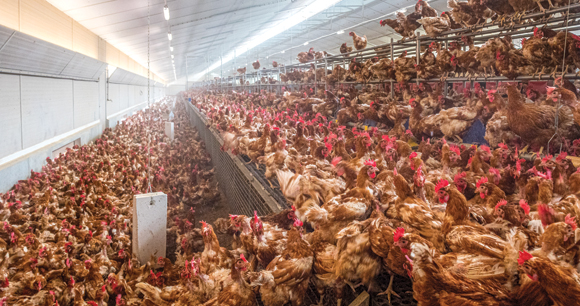Across the globe, animal advocates and public health officials are working to prevent the next pandemic by making policy recommendations and implementing laws to identify and curb the transmission of zoonotic diseases. By addressing circumstances that lead to disease spread, governments can stop pandemics and improve the welfare of farm animals and wildlife.

The United Nations Environment Programme (UNEP) has released a new report, Preventing the Next Pandemic: Zoonotic diseases and how to break the chain of transmission. UNEP identified seven trends driving the increasing emergence of zoonotic diseases, including increased human demand for animal protein and unsustainable agricultural intensification. The report also identified the need for nations to adopt animal welfare standards for the care, housing, and transport of live animals along the entire supply chain to reduce disease transmission.
Live animal markets, which can facilitate the spread of zoonotic disease, have also been targeted by lawmakers and advocates (see AWI Quarterly, summer 2020). In New York, a member of the state legislature has introduced a bill to ban live animal markets pending a review by a panel of experts regarding the associated public health risks. China is also reportedly working to limit human and animal interactions by gradually ending the sale of live poultry and restricting the sale of certain wildlife species.